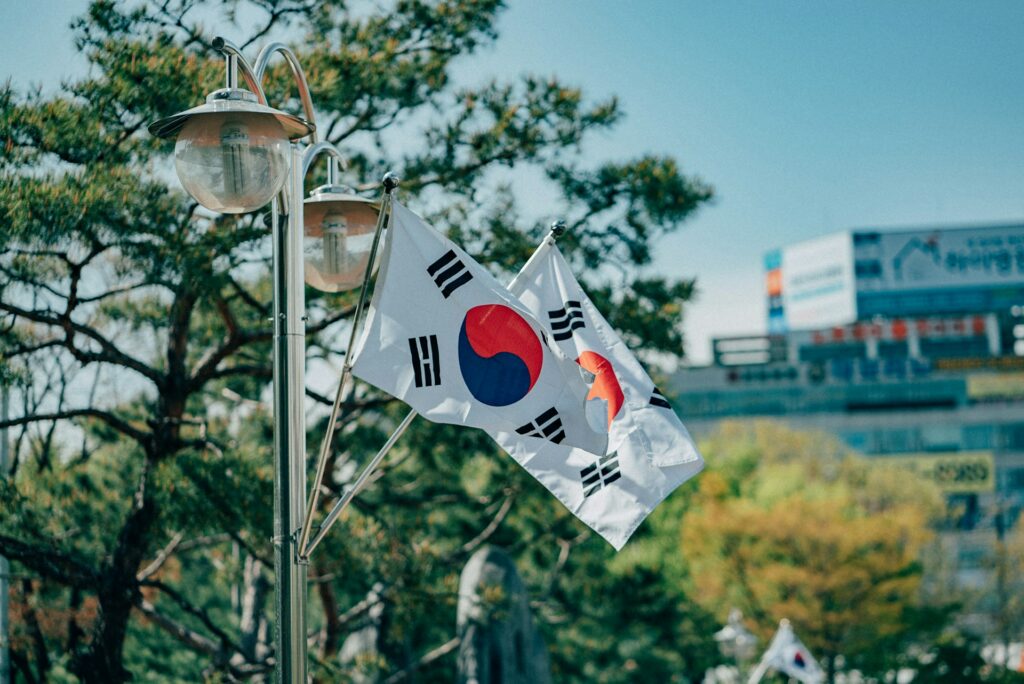
(Rightallegiance.com) – In a dramatic turn of events, South Korean President Yoon Suk Yeol rescinded a martial law declaration early Wednesday morning, just hours after its imposition. The swift reversal followed a night of intense political and public backlash, culminating in a parliamentary vote to invalidate the measure. Troops, who had surrounded the National Assembly, began withdrawing as lawmakers and citizens rallied against the decree.
A Controversial Declaration
President Yoon had declared martial law late Tuesday, citing the need to eliminate what he described as “anti-state” forces and protect the nation from perceived threats. The move was widely seen as a response to his struggles with an opposition-controlled parliament, which he accuses of sympathizing with North Korea. The declaration invoked memories of South Korea’s authoritarian past, sparking immediate outrage among political leaders and citizens.
National Assembly Speaker Woo Won Shik swiftly denounced the martial law declaration as “invalid” and promised to “protect democracy with the people.” Woo called lawmakers to convene at the Assembly, leading to a bipartisan vote to overrule the president. The declaration was formally annulled during a Cabinet meeting around 4:30 a.m. Wednesday, marking the end of a tense six-hour period.
Military Presence Sparks Alarm
As martial law took effect, military personnel surrounded the National Assembly, blocking entrances and deploying helicopters on the premises. Television footage showed helmeted soldiers armed with rifles patrolling the grounds, while protesters gathered outside. Some scuffles occurred, and at least one window was broken as soldiers attempted to enter the building. Despite the tension, there were no reports of major injuries or property damage.
Jo Seung-lae, a Democratic lawmaker, claimed security footage suggested the military had intended to detain key political figures, including Woo and Lee Jae-myung, the leader of the opposition Democratic Party. The Defense Ministry and the president’s office declined to comment on these allegations.
Opposition and Public Backlash
Yoon’s decision was met with sharp criticism from across the political spectrum. Lee Jae-myung, whose party holds a majority in the 300-seat parliament, accused Yoon of acting illegally and vowed to remain in the Assembly until martial law was lifted. The president’s own conservative party also distanced itself from the decision, with party leader Han Dong-hoon calling it “wrong” and unconstitutional.
Public protests erupted overnight, with demonstrators waving banners and calling for Yoon’s impeachment. The scenes outside the Assembly reflected widespread dissatisfaction with the president, whose approval ratings have plummeted in recent months.
Legal and Constitutional Questions
Under South Korea’s constitution, martial law can only be declared in situations of war or comparable national emergencies. Critics argued that Yoon’s actions failed to meet this threshold, casting doubt on the legality of his decree. The constitution also requires the president to lift martial law if the National Assembly votes to overturn it—a step lawmakers took unanimously.
During the brief period of martial law, the military announced restrictions on political gatherings and threatened arrests without warrants. The White House expressed “serious concern” over the developments, with a National Security Council spokesperson confirming that the Biden administration had not been informed in advance.
A Nation Reflects on Its Democratic Values
Yoon’s declaration marked the first martial law in South Korea since the country’s democratization in 1987. The move drew comparisons to the authoritarian era of former military dictator Park Chung-hee and was widely condemned as a setback for democracy. Natalia Slavney, a research analyst at the Stimson Center, described it as part of a “worrying trend of abuse” under Yoon’s leadership.
“This was a serious backslide for democracy,” Slavney said, highlighting South Korea’s history of political pluralism and mass protests. She drew parallels to the impeachment of former President Park Geun-hye, who was removed from office in 2017 after nationwide demonstrations.
The Road Ahead
With the lifting of martial law, Yoon faces the possibility of impeachment—a scenario that appeared likely even before his controversial declaration. Analysts described his actions as a desperate gamble with little chance of success. “He has nothing to lose,” said Sydney Seiler, a Korean affairs expert, likening the move to a long-shot play in American football.
Yoon defended his decision in a televised speech, asserting that martial law was necessary to protect the nation from “pro-North Korean forces” and restore order. However, his critics remain unconvinced, citing his failure to address scandals involving his administration and his hardline stance on North Korea.
As South Korea navigates the aftermath of this political crisis, the incident serves as a stark reminder of the country’s ongoing struggle to balance democratic ideals with internal and external challenges.